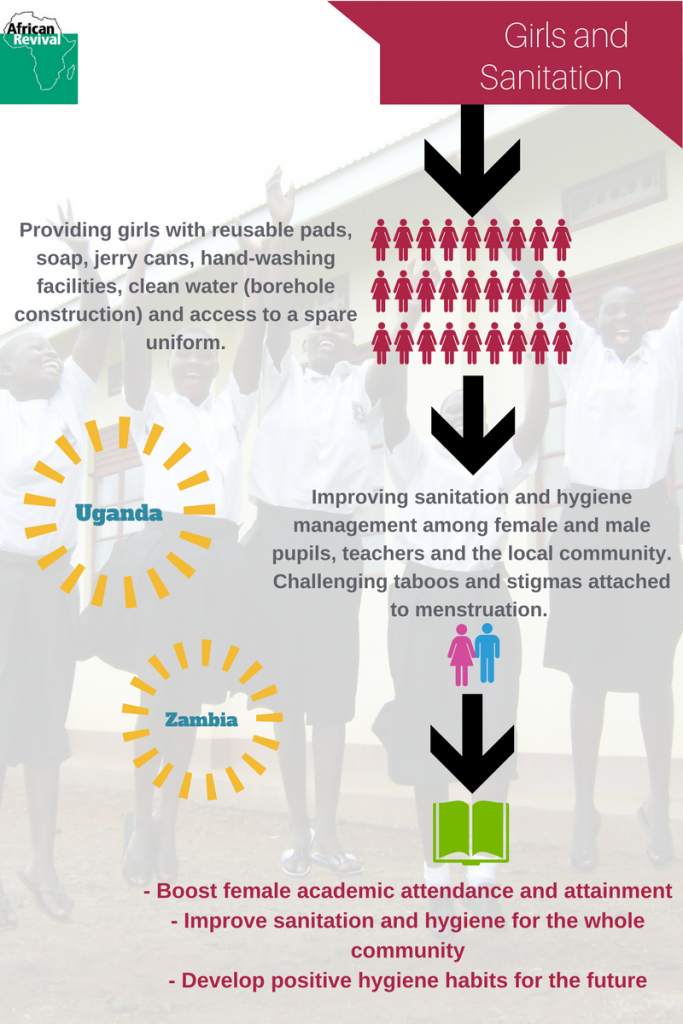Girls and Sanitation
 We’ve found that menstruation is one of the main reasons girls in Uganda and Zambia don’t go to school regularly. We want menstruation to be seen as a normal, natural process by students, teachers and the wider community – we believe this will boost academic attainment and attendance among female pupils.
We’ve found that menstruation is one of the main reasons girls in Uganda and Zambia don’t go to school regularly. We want menstruation to be seen as a normal, natural process by students, teachers and the wider community – we believe this will boost academic attainment and attendance among female pupils.
Ensuring equal access to high-quality education for girls is one of the most important investments any country can make in terms of its economic development and the wellbeing of its citizens.
The programme
In January 2018 we launched a 5 year programme which will provide educational workshops on hygiene management and sanitation to pupils, teachers and the community. Through these workshops we will also tackle taboos and stigmas attached to menstruation. Along with the educational aspect we will construct boreholes, latrines, hand washing facilities at schools that don’t have them already.
Why girls’ education is important
Girls’ education is guaranteed to improve the quality of life of current and future generations, with some of the key outcomes being:
- Greater political and civil society participation
- Greater awareness of human rights
- Fewer child marriages
- Less incidence of sexual abuse
- Healthier children
- More economic engagement and growth
Unfortunately, in Northern Uganda and Zambia, as in many parts of the world, girls are at a disadvantage compared to their male counterparts. The culture of the region – particularly in poor, rural areas – is still highly patriarchal. Girls are expected to do household chores, to look after younger siblings, and to marry early.
As a result they are less likely to be sent to school in the first place. For those fortunate to go at all, they are likely to drop out of school early. Reasons for this include:
- Problems associated with poverty
- The embarrassment of having to deal with menstruation without proper sanitation facilities and products
- Having to deal with pregnancy at a very young age
African Revival – Investing in Education – is helping to change this situation.

